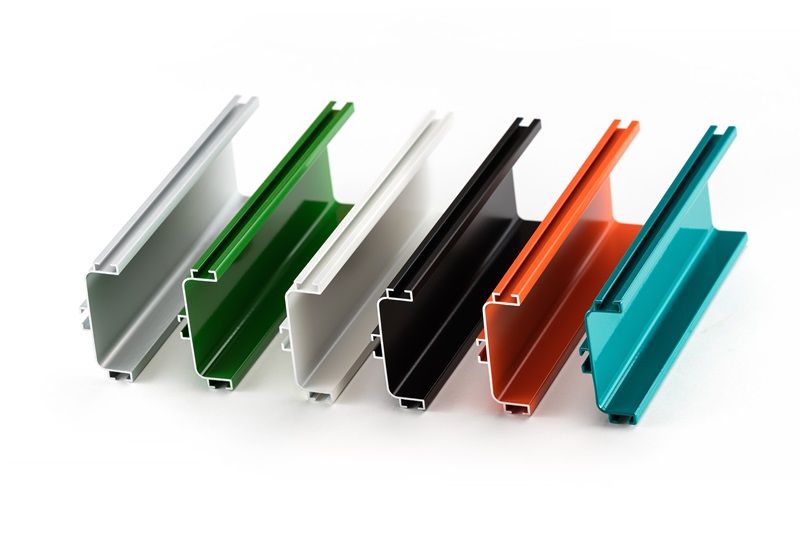
Exploring the Versatile Applications of Aluminium Profiles Across Industries
Aluminium profiles have become a cornerstone in various industries due to their lightweight, durable, and corrosion-resistant nature. These versatile metal structures offer a wide range of applications, making them indispensable in modern engineering, construction, transportation, and even consumer goods. In this article, we will dive deep into the extensive uses of aluminium profiles across multiple sectors, shedding light on why they are preferred over other materials.
1. Construction Industry
The construction industry is one of the largest consumers of aluminium profiles. Their adaptability and strength make them ideal for building frameworks, curtain walls, window frames, and door structures. Aluminium’s corrosion resistance allows these profiles to withstand extreme weather conditions, reducing maintenance costs and increasing the lifespan of buildings.
Moreover, aluminium profiles are used in architectural designs for aesthetic purposes. They can be shaped into various forms, allowing architects to create modern, sleek designs while maintaining structural integrity.
2. Transportation Sector
Aluminium profiles play a significant role in the transportation industry, particularly in automotive, railway, and aerospace applications. The lightweight nature of aluminium reduces the overall weight of vehicles, which improves fuel efficiency and reduces emissions. In the automotive industry, aluminium profiles are used for body frames, roof racks, and interior components, contributing to both the performance and safety of vehicles.
In the aerospace sector, aluminium profiles are essential due to their high strength-to-weight ratio. Aircraft and spacecraft benefit from the reduced weight, allowing for better fuel economy and improved performance during flight.
3. Furniture and Interior Design
Aluminium profiles have found their way into modern furniture design due to their versatility and modern aesthetic appeal. They are used to manufacture everything from sleek office desks to modular shelving units. Aluminium profiles provide strength without bulk, allowing for minimalist designs that maximize space.
Additionally, these profiles are often used in interior décor elements such as sliding doors, window frames, and room dividers. Their ability to be customized in different shapes and finishes makes them a favorite for designers looking for both style and functionality.
4. Solar Energy Systems
With the increasing shift toward renewable energy, solar panel aluminium profiles have gained importance in solar energy systems. These profiles are used to build frames and supports for solar panels. The durability of aluminium ensures that the solar panels remain stable in various environmental conditions, from intense sunlight to heavy rain.
Aluminium’s lightweight nature also simplifies the transportation and installation of solar panel systems, reducing costs and improving the efficiency of renewable energy projects.
5. Electrical and Electronics Industry
In the electrical industry, aluminium profiles are used to manufacture heat sinks, which help in dissipating heat from electronic devices such as CPUs and power transistors. The high thermal conductivity of aluminium makes it an excellent choice for cooling components.
Additionally, aluminium profiles are widely used in the construction of LED lighting fixtures. They offer a combination of lightweight design, efficient heat dissipation, and easy assembly, making them ideal for mass production in the lighting industry.
6. Industrial Machinery
Aluminium profiles are extensively used in industrial machinery, particularly in the construction of conveyor belts, workbenches, and robotic arms. Their flexibility allows engineers to customize designs based on the specific needs of the production line.
Aluminium’s strength-to-weight ratio ensures that machinery can operate efficiently while maintaining durability. This makes aluminium profiles a cost-effective solution for various industrial applications, from manufacturing to automation.
7. Marine Industry
The marine industry benefits from the corrosion-resistant properties of aluminium, making it ideal for boat building and offshore structures. Aluminium profiles are used in the construction of hulls, decks, and railings, offering strength and durability in harsh marine environments.
Since aluminium does not rust like steel, it significantly reduces maintenance efforts and prolongs the lifespan of marine vessels and structures exposed to saltwater.
8. Consumer Goods
Aluminium profiles are also present in everyday consumer products, ranging from household appliances to electronic devices. Their lightweight and durable nature makes them ideal for products such as smartphones, laptops, and kitchen equipment.
Aluminium profiles help improve the aesthetic appeal of these products while ensuring functionality and longevity. Manufacturers use them to create sleek, modern designs that appeal to consumers looking for both style and practicality.
The wide range of applications for aluminium profiles demonstrates their importance across various industries. From construction and transportation to consumer goods and renewable energy, aluminium profiles offer numerous benefits, including lightweight, corrosion resistance, and high strength. As industries continue to evolve and focus on sustainability, the demand for aluminium profiles is expected to rise even further, making them a key material for the future of engineering and design.
By understanding the versatility of aluminium profiles, companies and consumers alike can make informed decisions about their use in projects and products, maximizing efficiency, cost-effectiveness, and environmental responsibility.
